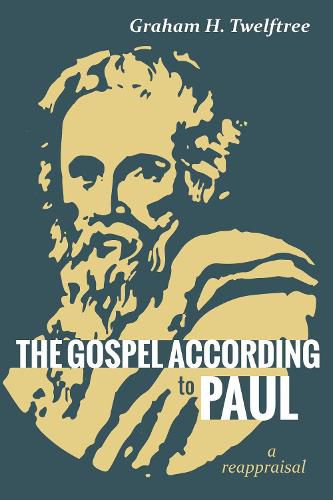Readings Newsletter
Become a Readings Member to make your shopping experience even easier.
Sign in or sign up for free!
You’re not far away from qualifying for FREE standard shipping within Australia
You’ve qualified for FREE standard shipping within Australia
The cart is loading…






This title is printed to order. This book may have been self-published. If so, we cannot guarantee the quality of the content. In the main most books will have gone through the editing process however some may not. We therefore suggest that you be aware of this before ordering this book. If in doubt check either the author or publisher’s details as we are unable to accept any returns unless they are faulty. Please contact us if you have any questions.
Paul’s gospel is misunderstood. Paul’s gospel is seen as his message, perhaps an empowered message; he saw it differently. His gospel can be many things: tradition about Jesus, Jesus Christ himself, the ministry of Jesus, the replication of the ministry of Jesus, God’s salvific drama, the salvation experience of people, a message, and something that can (and should) be embodied or lived. And the gospel does not come to people in Paul’s preaching. He says it comes or takes place in both his message and the miraculous. Without the involvement and acts of God (in the miraculous), for Paul, there would have been no gospel, only preaching. It is not that the miraculous was simply a proof or demonstration of the gospel; it was integral to it. In the gospel’s coming or establishment, it is clear that, at heart, the gospel is God’s salvation–the presence of God himself–in Christ, experienced in the symbiotic relationship between Paul’s message about God’s Son, Jesus Christ, and the activity of God in the miraculous. Not surprisingly, then, Paul rarely talks of preaching the gospel. He sees himself as
gospelling.
$9.00 standard shipping within Australia
FREE standard shipping within Australia for orders over $100.00
Express & International shipping calculated at checkout
This title is printed to order. This book may have been self-published. If so, we cannot guarantee the quality of the content. In the main most books will have gone through the editing process however some may not. We therefore suggest that you be aware of this before ordering this book. If in doubt check either the author or publisher’s details as we are unable to accept any returns unless they are faulty. Please contact us if you have any questions.
Paul’s gospel is misunderstood. Paul’s gospel is seen as his message, perhaps an empowered message; he saw it differently. His gospel can be many things: tradition about Jesus, Jesus Christ himself, the ministry of Jesus, the replication of the ministry of Jesus, God’s salvific drama, the salvation experience of people, a message, and something that can (and should) be embodied or lived. And the gospel does not come to people in Paul’s preaching. He says it comes or takes place in both his message and the miraculous. Without the involvement and acts of God (in the miraculous), for Paul, there would have been no gospel, only preaching. It is not that the miraculous was simply a proof or demonstration of the gospel; it was integral to it. In the gospel’s coming or establishment, it is clear that, at heart, the gospel is God’s salvation–the presence of God himself–in Christ, experienced in the symbiotic relationship between Paul’s message about God’s Son, Jesus Christ, and the activity of God in the miraculous. Not surprisingly, then, Paul rarely talks of preaching the gospel. He sees himself as
gospelling.